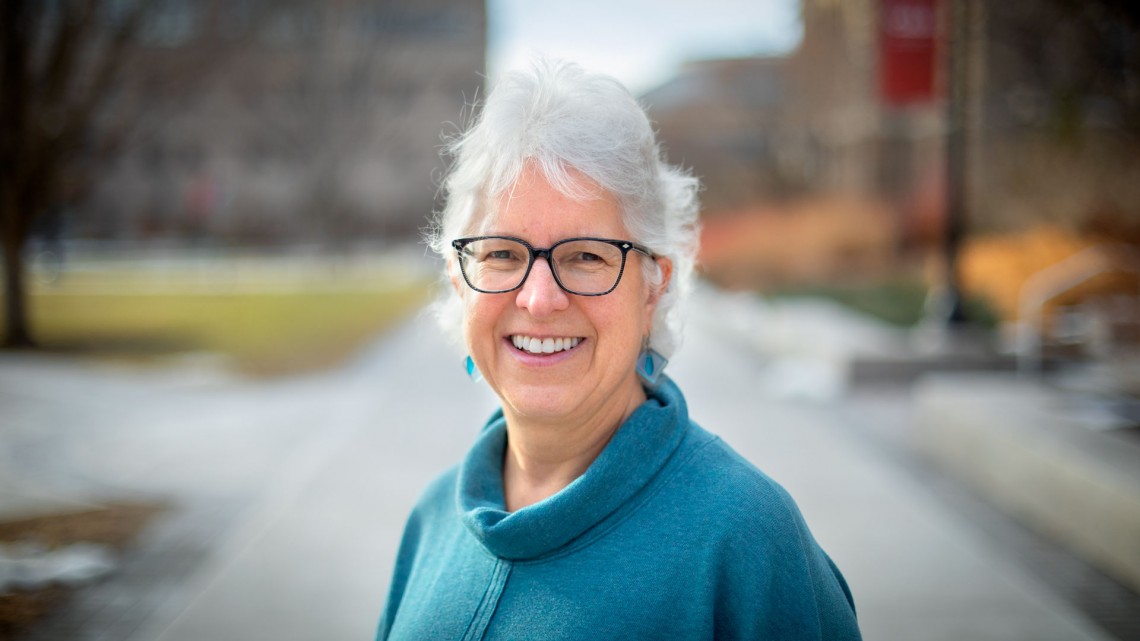
Barbara A. Knuth, dean of the Cornell Graduate School and a professor of natural resource policy.
Graduate students help drive Cornell’s research mission
By Barbara A. Knuth
I am inspired daily by the scholarly work of our graduate students. Their innovations and intellectual energy are vital to Cornell’s research productivity.
Their inquiry and scholarship span the globe, tackling topics from using the human body’s own immune response to fight diseases such as osteoarthritis (Tibra Wheeler, biomedical engineering) to gene sequencing grapevine diseases to improve plant health in Finger Lakes vineyards (Breanne Kisselstein, plant pathology), to applying scientific dating methods to reconstruct the sociocultural history of the prehistoric Caucasus region (Annapaola Passerini, anthropology).
Cornell Ph.D. students produce more than 500 original dissertations each year. Research master’s students author nearly as many original theses. This collective original scholarship helps drive the university’s research enterprise and extends Cornell’s reach into the world.
For example, psychology doctoral student Rachel King’s research focuses on “when and how social biases develop, and how they might be eliminated or prevented in childhood.” She hopes that improved understanding about how social biases emerge may lead to effectively reducing the development of prejudiced attitudes in future generations.
Why did she choose Cornell? “I knew that if I came here I could follow my passions – even if that meant crossing traditional area, department or college boundaries,” she says.
Michael Dunaway, a doctoral student in natural resources, earned his undergraduate degree at Haskell Indian Nations University. His dissertation focuses on finding ways “for Native American tribes to determine which renewable resource technology is best suited for their reservation so they can better assert their freedom.” He was attracted to Cornell because his prospective adviser told him: “Indigenous communities have had enough mediocrity. They deserve our very best, our excellence. And, so, I will demand excellence of you.” That philosophy characterizes so many of our graduate students and faculty – a commitment to serve others through excellence in scholarship and inquiry supporting Cornell’s research mission.
Cornell Graduate School’s role is to work across the university to ensure the scaffolding that undergirds this excellence, and to support graduate students as they hit bumps in the road, which they inevitably will over their five or six (or more) years in doctoral studies.
Research activities don’t always go as planned. Failures provide opportunities to learn. Overcoming challenges builds resilience. But it’s often hard to have this perspective when you’re alone working in a lab or in the library immersed in your own project day after day, week after week: 76% of Cornell’s Ph.D. students report feeling overwhelmed during their doctoral studies by all they have to do; 38% report mental health as an obstacle to their academic success; and 62% report their own low self-confidence as an obstacle.
Cornell’s graduate community is committed to helping graduate students develop into confident, independent scholars whose research has impact and who are able pursue the career path of their choice. To help students foster resilience now and in their future careers, we offer a range of programs on developing transferable skills. We partner with others, like Cornell Health, in working with faculty to enhance a culture of well-being, encouraging a growth mindset in students, countering feelings of impostor syndrome, and fostering resilience when faced with challenges or outright failure.
Our Pathways to Success suite of professional development programs provides guidance for transitioning from previous undergraduate or professional experiences into the culture and rigors of graduate education. We help students learn to navigate the research degree landscape, build important skills along the way and explore career options.
Our focused mentor training programs help graduate students become effective mentors to undergraduates, guiding and growing undergraduate students’ capacities to contribute to scholarly inquiry and discovery, thereby further extending Cornell’s research mission. Other programs help graduate students communicate their research or scholarship to more general audiences beyond Cornell, and develop leadership, academic writing and personal skills for future success.
And graduate students create their own groups to support each other, such as the First Generation and Low Income Graduate Student Association founded by doctoral students King, Taylor Brown (natural resources) and Felicia New (genetics, genomics and development), who note: “We’ve learned that if you have an idea [at Cornell], there is usually a way to realize it.”
Working side by side with Cornell faculty, our graduate students demonstrate creativity, produce new insights and drive discoveries. Our job is to make sure they have the tools to thrive.
Barbara A. Knuth is dean of the Cornell Graduate School and a professor of natural resource policy.
This story originally appeared in the online-only spring 2020 issue of Ezra magazine.
Media Contact
Get Cornell news delivered right to your inbox.
Subscribe

